Israel-Hamas War: What happened on Day 146?
Hamas claims 'massacre' as Palestinians killed in Gaza aid delivery disaster • Netanyahu: Too early to tell if a deal will be reached in the next few days
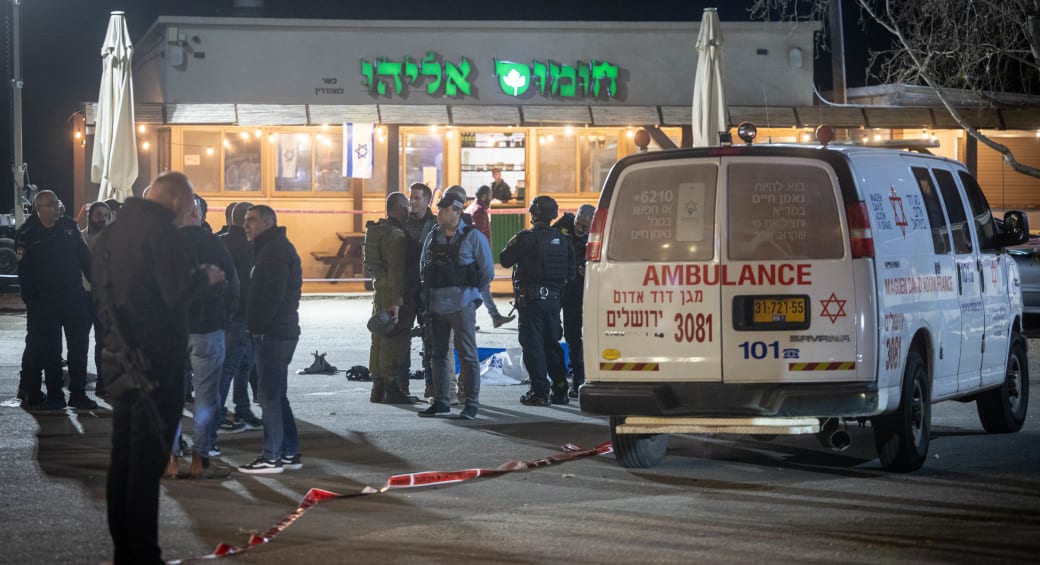
Hamas chief Haniyeh calls on Arabs to storm al-Aqsa on Ramadan
Hamas terror chief Ismail Haniyeh made a televised statement on Wednesday calling on barricades at al-Aqsa Mosque at the start of Ramadan and Hamas's "flexible" stance on hostage negotiations.
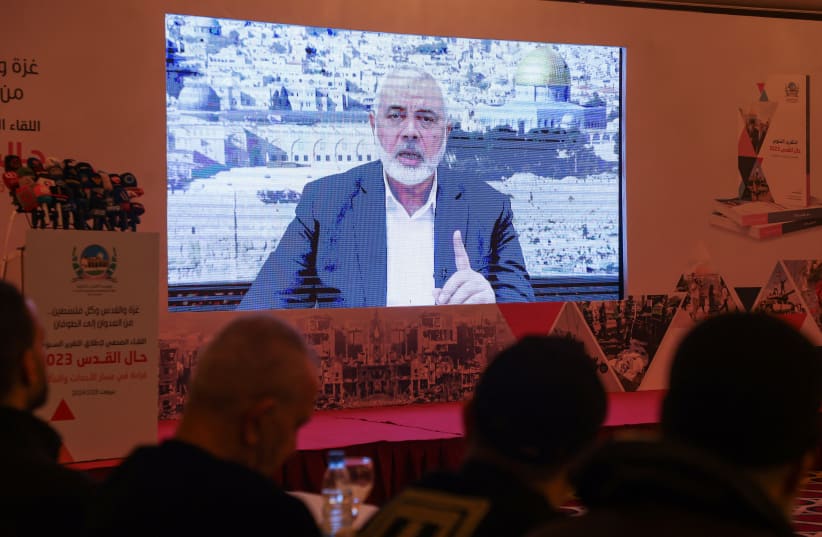
In a televised statement, senior Hamas leader Ismail Haniyeh called on residents of the West Bank and Jerusalem to barricade themselves at the al-Aqsa Mosque at the beginning of Ramadan. Haniyeh also called for "a broad and international movement to break the siege on al-Aqsa Mosque."
Hostage negotiations
Haniyeh asserted that when it came to hostage negotiations, Hamas was demonstrating "flexibility," though the terrorist group maintained that they would continue fighting.
Haniyeh addressed the possibility of the IDF's invasion of Rafah and expressed hope that international efforts would restrain Israel's ambitions of an invasion.
In his own words, "The occupation and its partner, the United States, will not be able to achieve through political machinations what they did not achieve in combat. The world, especially Arab states, must restrain the enemy and refuse to let them invade the city of Rafah."
Go to the full article >>'He's losing it': Nasrallah's swagger is gone as emotion takes over - analysis
Signs suggest Hezbollah leader Hassan Nasrallah is unraveling. Has emotion replaced rationality?
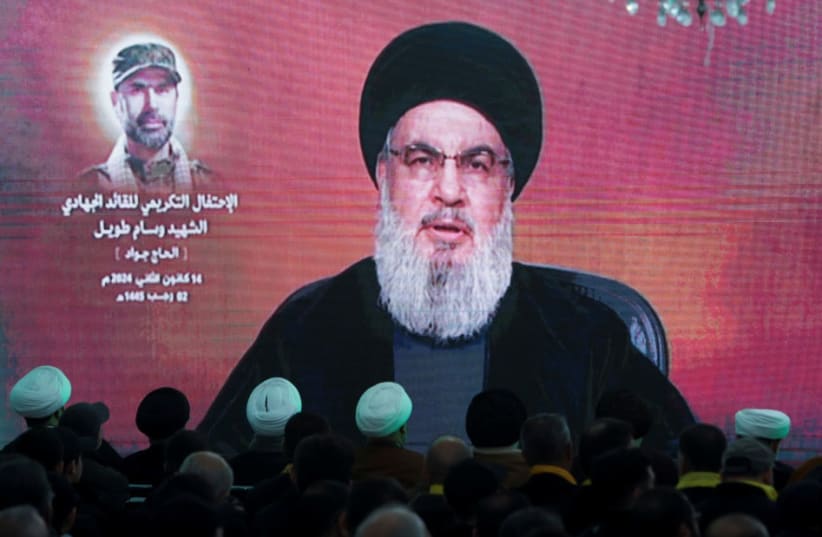
One of Hezbollah leader Hassan Nasrallah's greatest assets, one he crafted and cultivated and became his hallmark, is his ability to convey swagger and cynicism in his speeches. Around 70% of the messages conveyed in speeches are not related to the content itself, but to his body language, intonation, and facial expressions.
With Nasrallah, it's definitely in his intonation; every word he says is emphasized, he speaks with a half-amused grin that gives his listeners the feeling that he has another trick up his sleeve.
Swagger conveys self-confidence, and therefore anyone who hears Nasrallah manages to fall for his image - if he's swaggering, he probably knows something we don't.
The man has made psychological warfare into an artform. He doesn't do too many interviews, which creates expectations for his speeches, not only among his own public but also among viewers abroad, especially in Israel. He is very calm and composed, which helps him exude great self-confidence.
How has Nasrallah lost his confidence?
Something has changed in Nasrallah's last two speeches. Both of these speeches were made in the same week, which is the first sign that something managed to shake him.
Go to the full article >>All eyes are on Russia as a mediator between Hamas and Fatah - editorial
Russia’s role as the host and mediator of these talks is particularly noteworthy. Moscow appears to be leveraging its perceived victories in Ukraine to expand its influence in the Middle East.
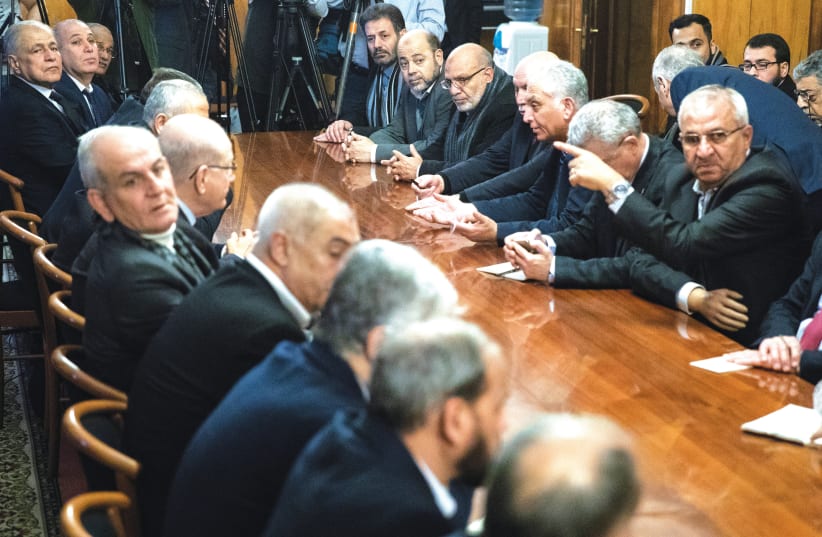
In the ever-evolving geopolitical landscape, the recent announcement of a meeting between representatives of Hamas and Fatah in Moscow marks a significant moment not only for Palestinian politics but also for the broader Middle Eastern dynamics.
Scheduled for Thursday, this gathering aims to discuss the formation of a unified Palestinian government and rebuilding Gaza, reflecting a critical juncture in Palestinian national aspirations. The involvement of Russia as a mediator underscores its growing ambition to assert influence in the Middle East, especially in the wake of its perceived successes in Ukraine.
Hamas, recognized as a terrorist organization by several Western countries, holds control over the Gaza Strip and maintains a staunch opposition against Israel, advocating for a radical Islamic state through both political and militant means. On the other hand, Fatah is a prominent Palestinian political party and the leading faction within the Palestine Liberation Organization (PLO), which has historically pursued a path toward Palestinian statehood through negotiation and diplomacy.
The backdrop to this meeting is a complex tapestry of regional politics, internal Palestinian divisions, and the aftermath of conflict. Days prior, the resignation of Palestinian Prime Minister Mohammad Shtayyeh signals a political shake-up intended to consolidate support for the Palestinian Authority. This move is seen as a response to the conflict in Gaza, underlining the need for a unified front against external pressures and the reconstruction of the war-torn region.
Palestinian Foreign Minister Riyad al-Maliki’s tempered expectations for the talks in Moscow reflect the intricate balance of hope and realism that characterizes the Palestinian approach to these negotiations. “We hope that there might be good results in mutual understanding between all factions about the need to support such a technocratic government that will emerge,” Maliki stated, highlighting the aim for a government capable of navigating the challenging political landscape. However, the shadow of previous failed negotiations looms large, raising questions about achieving substantial progress.
Go to the full article >>What game is Iran playing, suddenly slowing down its nuclear program? - analysis
On Monday, the IAEA reported that Iran had reduced its stockpile of 60 percent enriched uranium by 6.8 kilograms (kg), after having grown this stockpile almost continuously since early 2021.
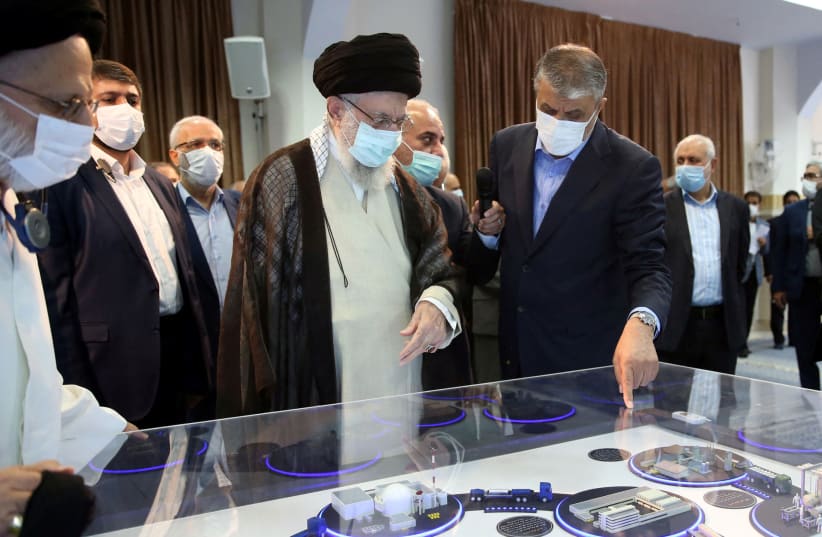
Iran sent very strong signals between last November and this January that it was pushing the envelope further with its nuclear-weapons program. Why, then, did it suddenly slow things down in February?
Is this a larger policy change? Or is Tehran just playing games again, just before the International Atomic Energy Agency Board of Governors is due to meet in early March?
Iran has reduced its stockpile of 60% enriched uranium by 6.8 kilograms, after having grown it almost continuously since early 2021, the IAEA reported Monday.
On the one hand, this is significant. It not only is complying with the West’s request to freeze its 60% highly enriched uranium progress, but rather, it is also reducing the existing stock.
Sixty-percent enriched uranium is only one level away from the 90% weaponized level. So, while meaningful symbolically, in statistical terms, the change is not worth much.
Go to the full article >>'Lebanon will be next': Iran greenlights Hezbollah attack on Israel - report
As per the report, Tehran gave the go-ahead amid fears that, after the IDF completes an invasion of Rafah, southern Lebanon "will be next."
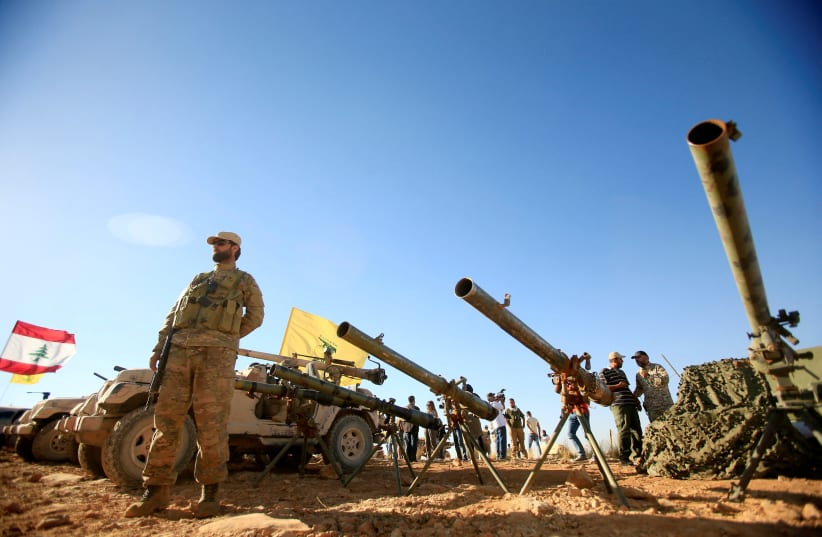
Iran has given Lebanese terror organization Hezbollah the green light to escalate its attacks along Israel's northern border, the Arabic Post reported on Wednesday, citing high-level Iranian and Lebanese sources.
The Islamic Republic has reportedly set conditions for Hezbollah, ordering it to launch a large-scale attack on Israel only after it "had become certain of Israel's intention" to carry out an invasion of the southern Gaza city of Rafah.
As per the report, Tehran gave the go-ahead amid fears that, after the IDF completes an invasion of Rafah, southern Lebanon "will be next."
Nasrallah calls emergency meeting with Quds Force chief over Israeli threats
A source from Iran's Revolutionary Guards (IRGC) told Arabic Post that Esmail Qaani, the IRGC's Quds Force commander, visited Hezbollah Secretary-General Hassan Nasrallah on Monday to discuss "the latest developments" along Israel's northern border.
Go to the full article >>IDF attack kills 25 in Nuseirat camp in Gaza - report
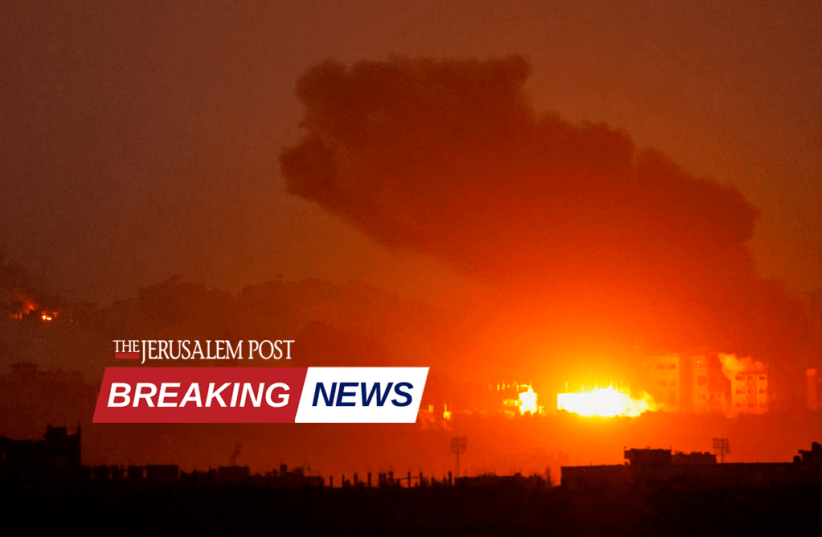
25 people were killed in an IDF attack on the Nuseirat camp in the center of the Gaza Strip, according to Arab media sources.
This is a developing story.
Go to the full article >>Israel-Hamas War: What you need to know
- Hamas launched a massive attack on October 7, with thousands of terrorists infiltrating from the Gaza border and taking some 240 hostages into Gaza
- Over 1,200 Israelis and foreign nationals were murdered, including over 350 in the Re'im music festival and hundreds of Israeli civilians across Gaza border communities
- 134 hostages remain in Gaza, 33 of which killed in captivity, IDF says